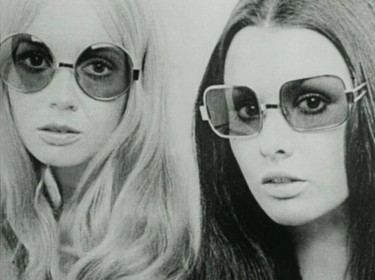 Growing Up Female DIR Jim Klein, Julia Reichert; SCR Jim Klein, Julia Reichert. US, 1971, black and white, 50 minutes.
Growing Up Female DIR Jim Klein, Julia Reichert; SCR Jim Klein, Julia Reichert. US, 1971, black and white, 50 minutes.
In 1971, Jim Klein and Julia Reichert interviewed various women of age, race, and socio-economic classes in Xenia, Ohio to gain insight into women’s strictly controlled mid-century roles in society and at home, which many have argued were largely defined by an unchecked patriarchal framework; although, some could argue roles were controlled by a more complex framework involving the increasingly polarized social images in post-World War II television and advertising mass media and that it was more of a middle-class problem than a lower-class problem where economic necessities leveled out particular inequities between men and women. The film deftly maneuvers from light references concerning abstract social theory to the personal experience and emotions of the female subjects, which feed both the viewers’ intellectual and emotional understanding. Although the cinematography is black and white, the film’s perspective isn’t: there seems to be no intent to argue a radical perspective calling for the total redefinition of women’s social roles; the filmmakers seem to have a more tempered attitude governing their investigation into the nuanced social balance among men and women. Produced in the vein of film collectives of that time and distributed in the paradigm of educational films through their New Day Films similar to that of Zipporah Films (the organization that manages Frederick Wiseman’s raw, similarly themed, socially conscious documentaries), Growing Up Female is more powerful than any fictionalized period film or any episode of Mad Men [2007] in that it actually shows you the female experience of that time period first hand and unfiltered.
Justin Baker